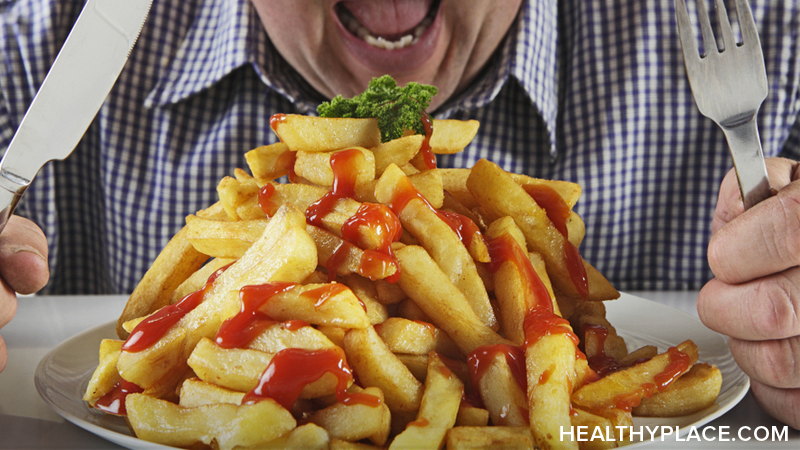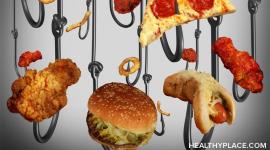Binge Eating and Overeating: What's the Difference?

To an untrained eye, binge eating and overeating can seem synonymous with one another. While there are certain habits and behaviors that overlap with these conditions, the two are very different and should be correctly diagnosed by a professional therapist or doctor. Only with proper analysis and treatment can the process of binge eating disorder therapy and healing begin in order to achieve a better quality of life. The following information provides more insight into the key differences between binge eating and compulsive overeating.
Binge Eating Disorder Definition
Overeating is not the same thing as binge eating and simple binge eating is not the same thing as a binge eating disorder. Overeating is the experience of eating to the point of being "too full". Overeating is something people commonly experience at holidays or on special occasions, where they have a second or third helping of dinner. Overeating may be caused due to skipping the previous meal, to alleviate stress, or simply because the food tastes good. While overeaters may experience discomfort and some regret after overeating, they are in control of their behavior.
Binge Eaters vs. Overeaters
Binge eating is a very different experience. Binge eating is overeating, but key to the binge eating definition is that binge eaters experience a loss of control. Once the binge eater begins eating, they feel they cannot stop eating even if they are uncomfortably full.1
Whereas overeating might be caused by feeling good, binge eating is often driven by poor body image, low self-esteem, trauma or body image issues. Binge eating is also typically associated with:
- Consuming a larger amount of food than others would consider reasonable in a short period of time, even when not hungry
- Eating more rapidly than normal
- Eating until uncomfortably full
- Eating alone and being embarrassed about eating behavior
- Hiding food
(Read about binge eating disorder symptoms.)
Binge eating is typically very upsetting to the binge eater and the person often feels disgusted, ashamed or depressed about their binge eating.
Definition of Binge Eating Disorder
In the DSM-5, binge eating disorder is listed as a specific mental illness.
The binge eating disorder criteria includes:
- Recurrent binge eating
- Binge eating occurring at least once a week for three months
- Experience of the binge eater of lack of control while bingeing
It is important to note that while binge eating can be a part of other eating disorders such as bulimia, in order to meet the criteria for binge eating disorder, the binge eating must not be attributable to another eating disorder.
Binge eating disorder is made up of compulsive behavior and needs to be treated as an addiction, generally with the help of a professional. Go here for more information on binge eating disorder treatment.
APA Reference
Tracy, N.
(2022, January 4). Binge Eating and Overeating: What's the Difference?, HealthyPlace. Retrieved
on 2026, February 27 from https://www.healthyplace.com/eating-disorders/binge-eating-disorder/binge-eating-and-overeating-whats-the-difference



